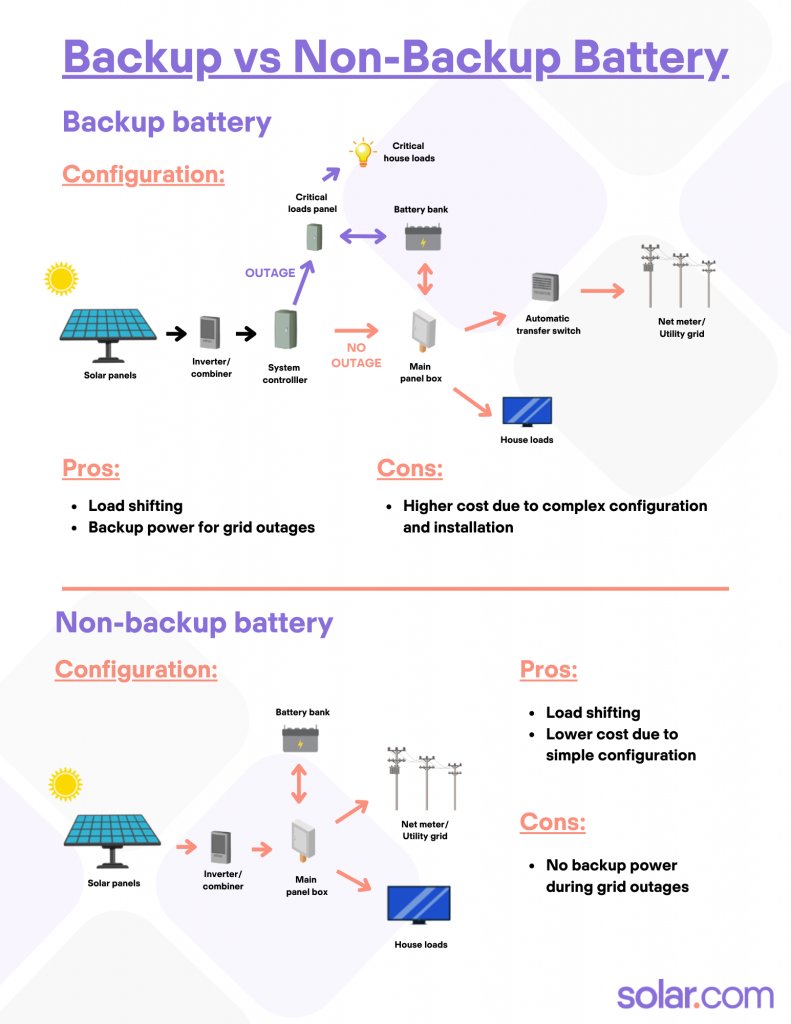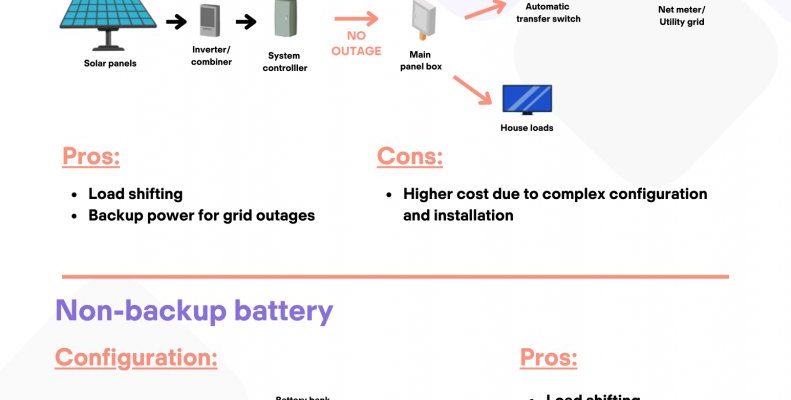
Let’s break this down. A battery backup acts like that trusty umbrella on a sunny day—helpful when the unexpected hits. Meanwhile, a no-battery backup scenario might be like stepping out without your umbrella, exposing you to unfortunate surprises. Ready to find out which option is best for your needs? Let’s dive in!
What Is Battery Backup in Garage Door Openers?
Battery backup in garage door openers is pretty much what it sounds like: a battery that stores power for use during outages. This battery ensures you can still operate your garage door even when the electricity is off. The kicker? Not all garage door openers come equipped with this feature, but many newer models do.
When a power outage occurs, a battery backup kicks in automatically, giving you peace of mind. If you’ve ever experienced a blackout, you know that having a way to get in and out of your home effortlessly is a game changer.
What Does No Battery Backup Mean?
On the other hand, a garage door opener without battery backup requires electrical power to function. That means during an outage, your opener will be completely non-operational. If you’ve got a manual override lever, you can still open the door manually—but this might require some elbow grease and isn’t nearly as convenient.
Choosing a garage door opener without a battery backup might save you a bit of cash upfront, but it poses challenges during power outages. Think of it like having a car without a spare tire: it works fine…until you need it.
Comparing Battery Backup and No Battery Backup
Let’s break down the differences to make a clearer choice between battery backup and no battery backup:
| Feature | Battery Backup | No Battery Backup |
|---|---|---|
| Operational During Outage | Yes | No |
| Manual Operation | Not Required | Manual Override Needed |
| Maintenance | Battery Replacement Needed | Minimal Maintenance |
| Cost | Higher Initial Cost | Lower Initial Cost |
Honestly, the decision ties back to your needs. Do you want convenience when the power goes out? Or are you okay with manual operations during times of trouble?
Why is Battery Backup Important?
Having a battery backup system gives you options during an outage. Think of it as your safety net. Here are a few reasons why it’s important:
1. Convenience: You can enter and exit your garage without hassle.
2. Safety: Avoid being trapped inside or outside your home.
3. Peace of Mind: Enjoy your time during storms or outages, knowing you’re covered.
The last thing you want during a stormy night is worries about how to get into your house.
Challenges of No Battery Backup
Let’s face it: a garage door opener without a battery can be inconvenient. Here are some challenges you face:
– Inaccessibility: If you’re outside your home during a storm, how can you get in?
– Manual Labor: Using the manual override can be clunky and sometimes too challenging for some homeowners.
– Dependence on Power: You’re entirely at the mercy of the electricity grid.
These factors can be stress-inducing, especially when life throws a curveball.
Common Misconceptions About Battery Backup
You might be thinking, “Aren’t battery backups prone to failure?” Here’s the thing: like any device, battery backups can fail—but regular checks and maintenance can mitigate this.
Additionally, some folks believe battery backups are too expensive. While they do come with a higher price tag, consider the long-term savings from reduced hassles and stress.
Cost Analysis: Is Battery Backup Worth It?
Let’s break down the costs. A standard garage door opener might start at around $150–$250, while a battery backup system can range from $250–$600. Here’s a quick analysis:
– Initial Cost: Battery backups are pricier upfront.
– Long-Term Savings: The convenience and safety they provide may save you money during unexpected situations.
– Replacement Costs: Batteries may need replacing every few years, which is an added expense.
Weighing the initial outlay against potential future benefits is key to making your decision.
Best Practices for Maintaining a Battery Backup
Keeping your battery backup in tip-top shape is essential. Here are some steps to follow:
1. Regular Testing: Run tests every few months to ensure the battery is functioning.
2. Replace As Needed: Most batteries last 3–5 years, so keep an eye on their lifespan.
3. Consult Professionals: Don’t hesitate to ask for help if something doesn’t feel right.
Routine maintenance now can save you headaches in the future.
When Should You Choose No Battery Backup?
You might wonder if sticking with a no-battery model is suitable for you. Here are some examples when it might make sense:
– Budget Constraints: If you’re on a tight budget, opt for a more affordable model.
– Limited Use: If you rarely use your garage, you might not need this added feature.
– Simplicity: Sometimes, simpler is better, especially if you want fewer components to manage.
Always consider your specific situation and needs when making your choice.
Final Thoughts: Making the Right Choice
Ultimately, choosing between a battery backup and no battery backup for your garage door opener boils down to your lifestyle and preferences. Do you prioritize peace of mind and convenience, or are cost and simplicity your main concerns?
By contemplating these factors, you’ll be well-equipped to make the best decision for your needs. Remember, the objective is not merely to pick a garage door opener but to ensure it aligns with your lifestyle habits and preferences.
Whichever route you choose, ensuring you have a reliable entrance to your home during power outages is essential. Stay safe!
